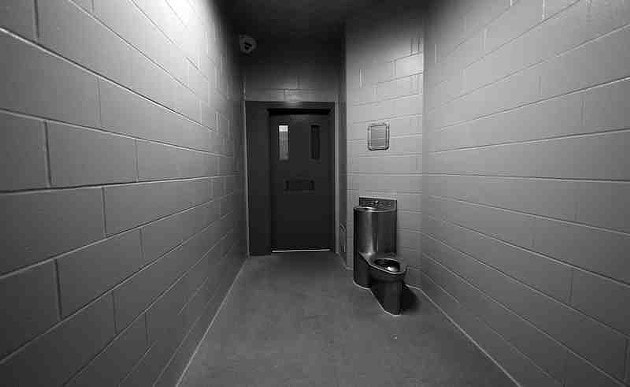
KJIPUKTUK (Halifax) – Last month, the prisoners at the Central Nova Correctional facility ended a three-week-long strike. Their protest drew attention to the issues in that facility and throughout our correctional system. Now, the province is being sued over its use of extended solitary confinement in our prisons.
According to the proposed class action suit filed yesterday, regardless of policy, solitary confinement in Nova Scotia can be extended indefinitely. In fact, earlier this year Auditor General Michael Pickup flagged that prisoners in Nova Scotia jails were confined longer than permitted by departmental policy.
Prisoners at Burnside have called for better access to health care on par with other Canadians, including pre-natal care. They want access to educational and rehabilitative programming, so they can be productive members of society upon release. And they want contact visits with their families — the ability to touch a loved one, a child or a parent, can maintain an important bond and help in the rehabilitation process.
For those convicted of a crime, the sentence is the punishment. It is meant to deter and rehabilitate. At the moment, time spent in our provincial jails does not convincingly accomplish either goal, given that our jail population is holding steady despite declining rates of crime. At an average cost of $256/day or over $93K per year, per inmate, maintaining our current prison population simply isn’t good enough.
Add to this that about 60 per cent of Nova Scotians serving time in our correctional facilities are on remand and have not been convicted of any crime, and the picture becomes even dimmer. The cornerstone of our criminal justice system is that an accused person is innocent until proven guilty. What does it say about us that we treat innocent people—any people—so inhumanely?
Just after the Burnside strike ended we discovered that a young intellectually disabled inmate had tragically taken his own life. Serious questions have been raised as to why he was in solitary in Burnside rather than in hospital under observation.
The prisoners, at the time, issued a statement which included the following: “The conditions and environment here speak for themselves. Since the protests started we have been locked down with even less time spent outside, in contact with our families, or getting any recreation. We know how these conditions hurt the mental health of people imprisoned here.”
Our provincial jails are a black box. We have very little idea of what goes on behind those walls at all. It’s time for some transparency in our correctional system. It’s time for an independent review of the practice of solitary confinement. It’s time for the government to start listening.
Claudia Chender is the MLA for Dartmouth South and the NDP Justice spokesperson. This op-ed was originally posted on Facebook, and is published here with her kind permission.
If you can, please support the Nova Scotia Advocate so that it can continue to cover issues such as poverty, racism, exclusion, workers’ rights and the environment in Nova Scotia. A paywall is not an option, since it would exclude many readers who don’t have any disposable income at all. We rely entirely on one-time donations and a tiny but mighty group of dedicated monthly sustainers.



